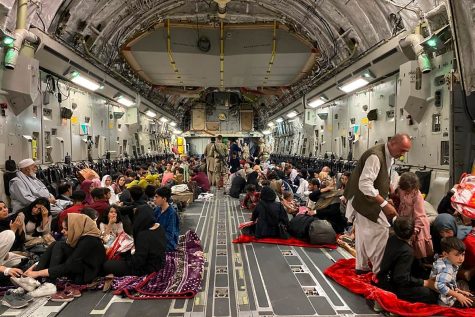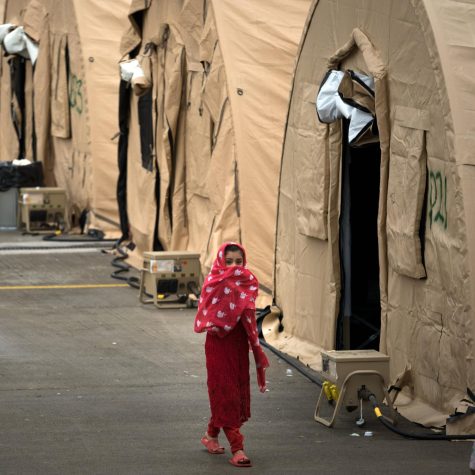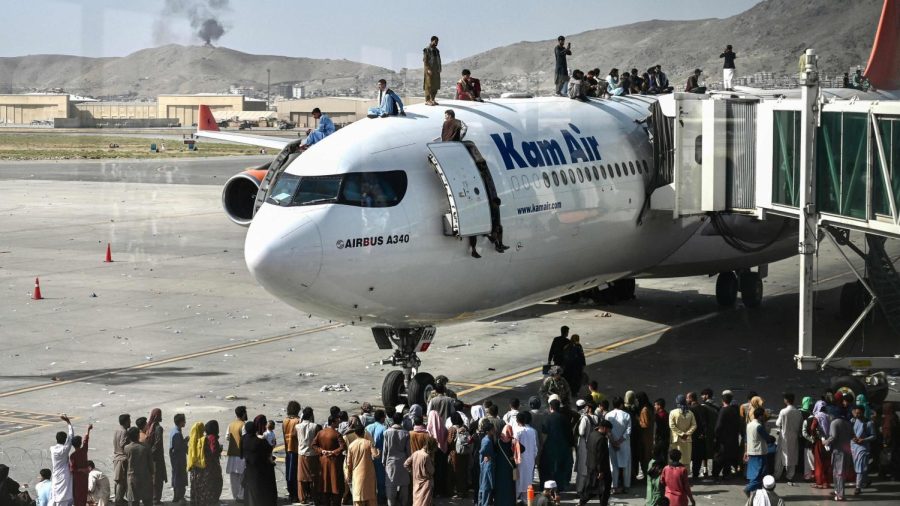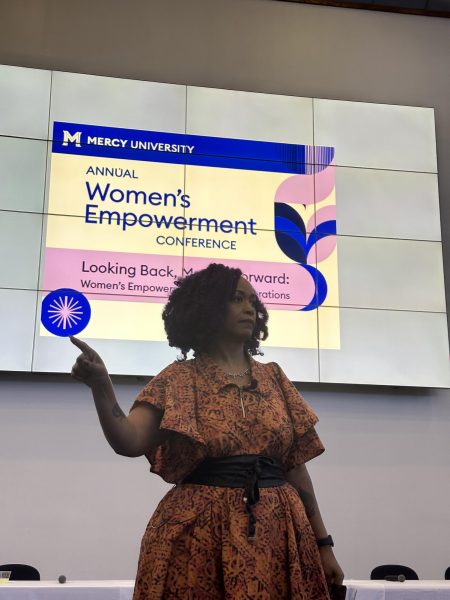Mercy College Community Runs Donation Drive for Afghanistan Refugees
“The Taliban would take men from their homes and shoot them in front of their families.”
Zenat Ishaq is still left with a chill after uttering those words. The enormity of the situation still looms over her. But she knew she had to act.
Ishaq, a Mercy College student in the Health Service Management Department and Administrative Assistant in the Nursing program, began a donation drive in August when she and the Afghanistan community of different mosques came together and began a WhatsApp group chat and asked “What can we do?”
As soon as they could, they contacted their connections on the base at Fort Dix. They were told what specific items the refugees needed, posted them on social media, and the items came flooding in.
Both of Ishaq’s parents are Afghanistan refugees. Her father left during the Soviet Union invasion in the 1980s, and her mother left when the Taliban first hit.
After American troops withdrew from Afghanistan, Mercy College students and the Afghan community started a donation drive for the Afghan refugees at Fort Dix.
People donated baby clothes, diapers, conservative clothes for women, men’s clothing, flip flops, shoes, blankets, winter jackets, prayer mats and the Quran.

“My mom was lucky because my grandfather had to hide his son. They got to see the next day and they would live. Other families, unfortunately, weren’t that lucky. They would have their sons ripped out of their homes during the night and just shot in the middle of the street in front of everybody,” said Ishaq.
Her mother, being one of a family of eight, was the only one able to escape the country.
Ishaq’s father left to make a living, be free, and to be able to send money back home to his family. However, he doesn’t talk about his time in Afghanistan. “No one wants to relive issues like that.”
The evacuation of the United States allied personnel and thousands of Afghans that worked with the United States, began when the Biden administration authorized the deployment of 6,000 troops to assist.

“There was a woman that was eight and a half months pregnant who flew in one of those planes knowing that her child may or may not make it,” says Ishaq as she shares a story a soldier told her. “But she had two other kids with her. She said she would rather her two kids have a brighter future and be safe than her and her unborn child.”
By the thousands, Afghanistan citizens began getting on the American planes to escape.
“Every refugee’s goal is to get out of the condition that they’re in,” clarifies Ishaq. “Whether it’s the country next door or the country overseas. It’s not particularly America, it’s ‘where can I go to make sure my child stays alive?'”
Before the refugees even arrived, the volunteers were trying to figure out ways to make them feel welcomed without overwhelming them.
One way was for kids to write cards for the kids at the refugee camps to let them know that when they come, there are kids waiting for them to play.
“We want to make sure they don’t feel alone,” explained Ishaq.
One of the main focuses was the little girls since they were oppressed because they weren’t allowed to go to school. When the volunteers asked the state trooper if the little girls wanted toys or dolls, all the girls said they wanted notebooks, pens and pencils.
When the refugees first came to Fort Dix, on Oct. 1, the volunteers welcomed them in with a barbecue of chicken, lamb, and beef kabobs.

Within the camp are villages that have rooms for every family. Every family is supposed to get a room and bathroom. But some villages haven’t set up rooms yet.
“They have to push the bunk beds together and wrap a white sheet around it to get some privacy,” explains Ishaq.
As for food, it’s first come first serve. If a refugee doesn’t make it on time to get a meal, they don’t eat that night.
The refugees can’t communicate with their family back home because there’s no Wi-Fi and the phones they have need sim cards. The only Wi-Fi they get is standing next to a vending machine, so they all take turns, she says.
The volunteers are in the process of trying to work with a resettlement organization to find homes for the refugees. Afterwards, they want to help them find jobs.
There were many comments regarding the refugees coming to America. The negative comments are disheartening to Ishaq because they made her think, “Is this how they feel about me?”
Ishaq explains to all that the refugees are people first and should be welcomed after the dangers they experienced. And that with support, they will become benefits to the United States.
“I think that’s why a lot of the community members are trying to take a handle on this and make sure the refugees become something and be something, so all the people who were giving this negative light can see that they did something about it and they’re not living off the government. They’re going to be something.”

Noelle Ramirez is a Junior at Mercy College perusing Journalism to become a Social Media Manager. Noelle enjoys listening to music, especially Bad Bunny,...


















